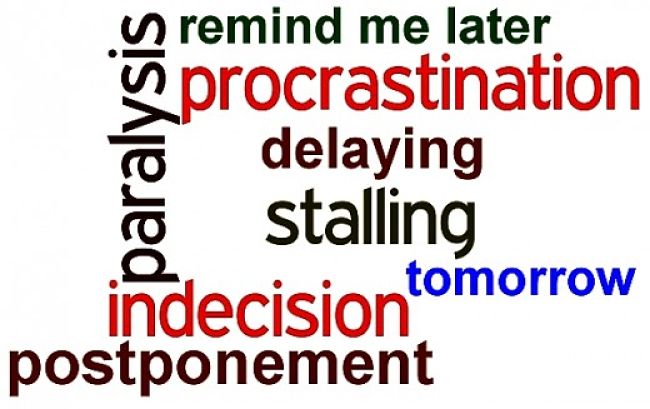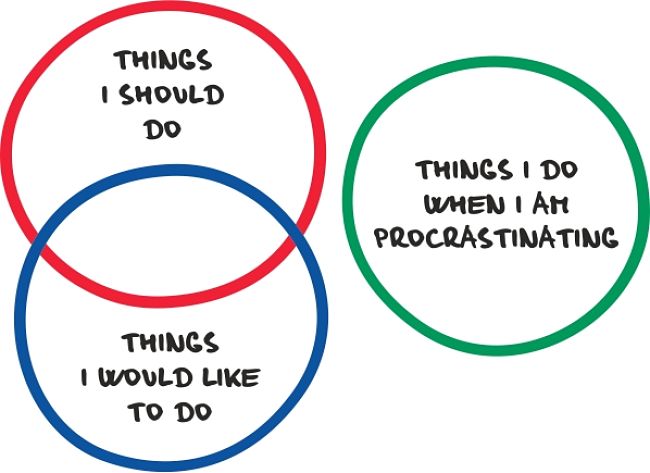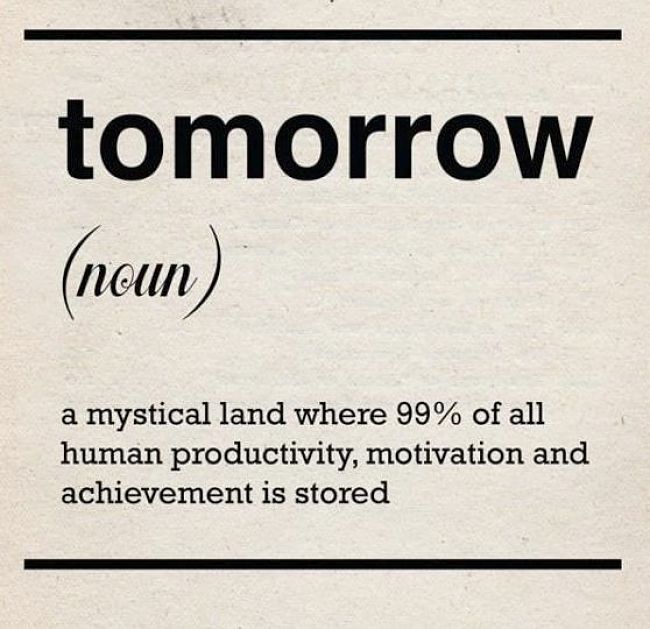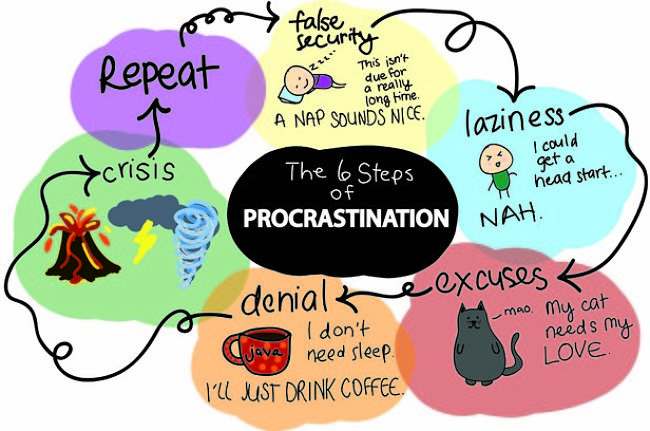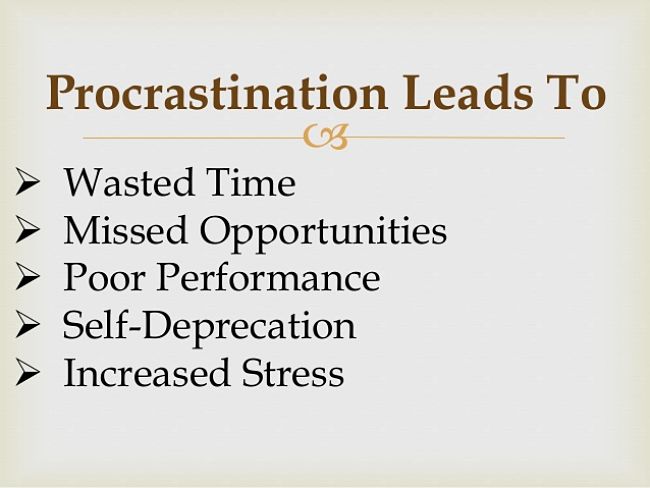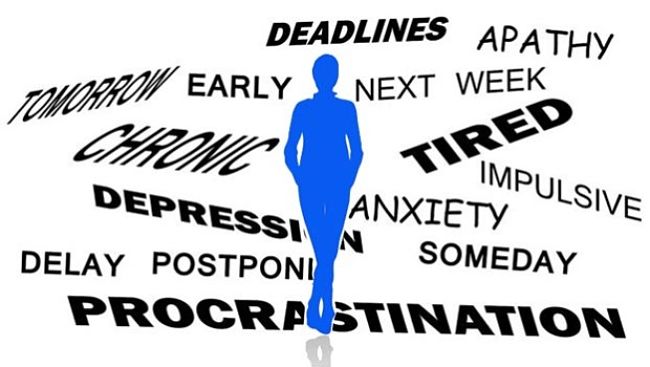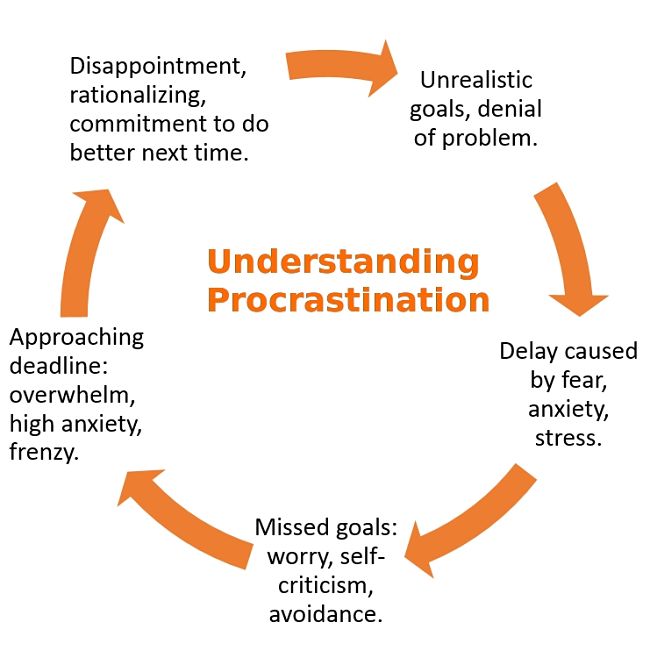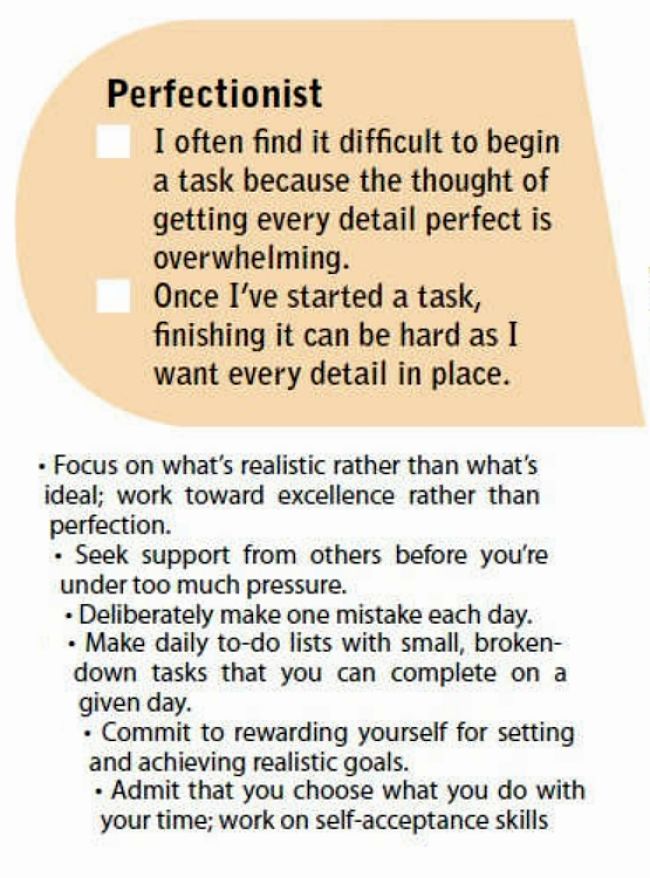Q&A: How to Stop Procrastinating and Indecision - Just Do It, Now
Why do we procrastinate, and let our doubt and indecision ruin our lives and fill it with regret about missed opportunities. Should we develop a "Just Do It, Now" attitude and habit to counter the indecision?
Yes, just doing it can become a habit that can replace your indecision, compulsive and crippling delaying tactics and postponements that destroy your productivity.
Research has shown that about 95% of people procrastinate at some point in their lives, and perhaps 20% of people do it all the time.
Research has also identified why we procrastinate. This provides clues as to how to overcome procrastination and develop the 'Just Do it Now' Habit.
All the little stories that we tell ourselves to justify all the delays and failures to decide are simply rubbish - why are we so gullible?
You know the script we call ourselves perfectionists, who do not want to do a poor or incomplete job (perfection is unachievable even in one lifetime).
We fear failure (not doing it ensures you fail). Work done in a rush will be full on errors and mistakes (but procrastinators always do it at the last minute when they are forced into it and do it poorly).
This article reviews the research on procrastination and offers 15 great tips on how to beat it for ever - Just Do It! Now!
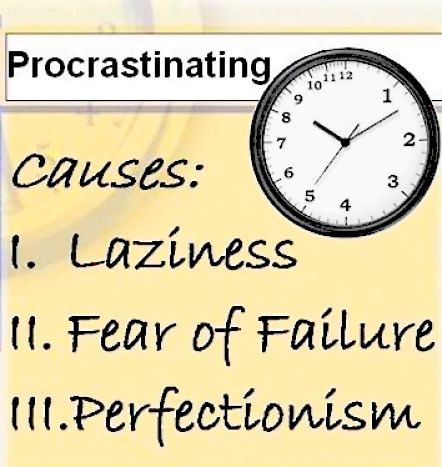
Procrastination is a Habit
Procrastination is the basically the bad habit of putting off until tomorrow what should have been done yesterday.
It is just a habit, it is done without really thinking about it - that's why the habit can be broken.
Researchers on the subject believe that everyone is hardwired to procrastinate, but the core of the problem is to break down the big daunting tasks into a series of smaller ones that you know you can do easily and quickly.
The other key aspect is to get better organised not by setting up some complicate set of goals and to do list, but to be ruthless in deciding what you want to do, when to do them and to avoid distractions.
Often we procrastinate simply by piling up a list of distractions on the path. Remove the distractions and suddenly you will have lots more time. Keep a daily list of ten things you want to achieve each day as an ordered pile of sticky notes. If something else pops up, that has to be done, simply spread the notes out, decide what can be dropped and revise the order you want to do them.
If you get rid of all the distractions and focus on one thing at a time, you will amaze yourself with how productive you can be. Be absolutely ruthless with your time.
Allocate just enough time for the task, or whatever you can spare to get it done.
We probably overdo most things an spent the last 40% of the time on things that don't really matter.
It is remarkable how much time we all waste doing the 90% job when 80% will do. Only a few of the things we need to do have to be done perfectly. Think about it.
Tips for Breaking the Procrastination Habit
Tip 1 - Recognise and deal with the fear
The fear that drives procrastination is mostly illogical. It arises because people are unsure of what to do, they fear the task may be complex and hard, they fear the amount of work involved and they fear failure and setbacks along the way. Switch the fear to a positive look at your fear if you don't do the task, look at how much worse it may become if you put it off so that there will be less time to complete it. Look at how you have succeeded in the past with similar jobs, especially when the job is broken down into its components. The other source of fear is that taking on the new job will cause pain and stress in terms of the other things you are already doing are about to do. You have to learn to take control and be willing to re-assign your priorities and manage your time better. Once again think of the positives.
Tip 2 - Focus on what could go right - the Positives
Start by making a list of the benefits if the new activity of task goes well. Also make a list of things that could go wrong. Highlight the risks and potential hazards and try to identify how you would deal with them and their consequences. By doing this you are already on the way - you have begun. Think of the rewards when you succeed. Breaking the task down into small steps will make the task seem less overwhelming. A lot of procrastination comes from erroneously over inflating the job, what's involved and the potential difficulties. Our fear makes the job seem bigger than it really is. Once we start all the speed-bumps suddenly get smaller and we find ways of overcoming them.
Tip 3. Keep yourself accountable
Sometimes your lack of productivity and unwillingness to take on tasks is simply because you don't assess your own performance as you would an employee. If you own the business or work alone it can be pretty easy to slack off. Also you may need someone else checking your performance to give yourself a reality check. A lot of this relates to time wasting and disturbances. If you lift your game and become more productive and efficient you will be less likely to procrastinate. Team up with some friends, set schedules and performance goals and aim to keep each other accountable. If you can get them to review what you do and to suggest efficiencies and enhancements to improve your productivity.
Tip 4. Be a victor, not a victim or outside influences
Its so easy to blame outside influences for problems or failure to start. People mistakenly believe that things will happen that are beyond their control. Much of this is negative thinking and most of these things on the 'fears lists' won't happen. Sure you cannot predict what will happen but what is in your control is the consequences and how you cope and deal with them. The only think that is totally in your control is what is inside your head. You need to develop resilience and self-confidence that you can deal with all the things outside your control. In some cases you can prepare separate pathways if some of the predicted risks eventuate. This basic risk management. Victim mentality is just a thought process founded on always blaming someone else or thing for what happens - but you control the outcomes. The opposite of 'victim mentality' is 'victor mentality' which is founded on self-confidence and the knowledge that whatever happens you will adapt and be a winner.
Tip 5. Just do it or delegate someone else to do it
There are many things which you don't like doing or which you may not be good at. If possible delegate these tasks so that you focus on what you are good at. Outsourcing is not that expensive and can be done for almost anything including a lot of personal tasks. Learning to delegate successfully with excellent outcomes is the key to developing good outcomes.
Tip 6. Ruthlessly identify what's important and set priorities
People are their own worst enemies as they try to juggle all their competing priorities in their brains and let all sorts of disruptions interfere with their plans. Everything does not needs to be done straight away and multi-tasking is a recipe for disaster. Emails are one of the classic examples that can ruin your concentration. Answering and reading every email that lobs into your in-tray is a classic way of always being disturbed. The trick is for you to recognise what's important for you, to develop an ordered list and to work through them one at a time. It is especially important to avoid interruptions. If something urgent crops up, simply re-schedule and reassign the priorities. Work through the tasks one at a time and use the list to know what is next on your schedule. Don't try to multi-task, simply focus all your attention on one task at a time
Tip 7. When you schedule to do things is important
One trap that people get caught up in is to always put off the most difficult task and the one that you least want to do to later in the day or week. This is classic procrastination. Instead, when you are developing your daily and weekly schedule always do the hard and least attractive things first - get them done and over with early. It is remarkable how much this will clear your head as otherwise you spend your day worrying about the 'horror task' that needs to be done but you keep putting off.
Tip 8. Get started - just Do it
It is remarkable how much the perspective about the job changes when you start. Suddenly all the things you have been worrying about are lifted off your shoulders. What seemed difficult and onerous suddenly becomes simple, especially when you break the job down into various steps. You need to break old habits and just start doing it.
Tip 9. Break the task down and assign reasonable amounts of time to each and keep on track to meet the schedule
Break the big task down into bite-sized chunks and develop a logical schedule for their completion. Work out a reasonable amount of time for each task and try to stick with it. Just finish each step within the time allocated. Running overtime is a classic form of procrastination. Your time is value so don't waste it
Tip 10. Reward yourself when you have completed the Task
Always reward yourself when you complete each step and the entire job. Take a break, have a bar of chocolate. go for a walk, take time off. This is very important as it builds confidence and self-esteem.
Tip 11. Spend more time with doers, less time with the no-hopers
Surround yourself with people who are renowned as doers and achievers. Some of their positive attitude may rub off and you will not be pulled down by negative thoughts and tentative commitments.
Tip 12. Tell other about your plans and schedule
Habitual procrastinators care very much about how others see them, and so this announcement can be used as motivation to keep on track.
Tip 13. Be fully prepared with everything at hand
Whenever you are ready to start make sure that you have everything at hand and ready. The classic procrastination response is to be interrupted all the time. Being fully prepared, so there are no interruptions is a powerful motivator for becoming fully engaged to complete the task. You will be amazed at how fast and efficient you can be if there are no breaks required to get something that you need.
Tip 14. Plan to eliminate distractions and interruptions
People with the procrastination habit love to be interrupted especially when facing a hard task or one they dislike doing. You need to reorganize things so that you are not interrupted. Phones, emails and personal visits need to be carefully controlled and restricted to the time you set aside for dealing with these things. Look closely at how much time you spend with emails which can waste a lot of time. Some companies have banned emails most of which have no value and are merely announcements.
Tip 15. Use thoughts about the negative consequences as motivation
Think about the consequences of you failing to complete the task on time. Don't panic, but use this as motivation. Also motivate yourself by looking forward to the rewards you have set up for completing the task. Be positive with your motivation
Tip 16. Set goals that genuinely motivate you
Setting goals that truly motivate you will help you to stop procrastinating. This can partially be done by identifying the parts of a complex job that really interest you. You can only get that satisfaction if you complete the boring stuff as well.
